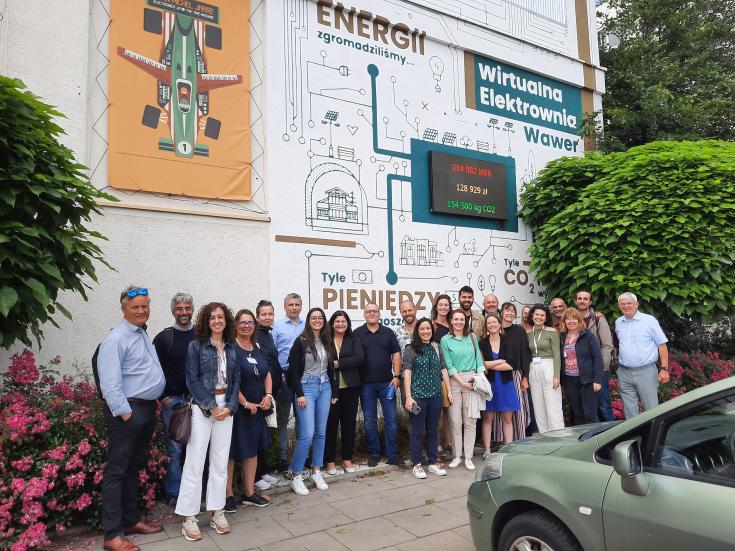Frugal Cities partners develop the Frugal approach in Warsaw
The FEEL Project held a thematic event on the 27th & 28th of June in Warsaw to define the frugal approach to cities and discuss good practices that have been implemented in the municipal regions. The event opened with an introduction and welcome from Bartosz Dubinski of the Mazovian Energy Agency followed by an ‘ice breaker’ to gauge the mood after the travel and early morning start.
The first presentation was from Benjamin Best of the Wuppertal Institute on Sufficiency, exploring how to use it as a political strategy to influence policy change achieving targets for energy reduction. The Intergovernmental Panel on Climate Change describe sufficiency as ‘a set of measures and daily practices that avoid the demand for energy, materials, land, water and other natural resources while providing well-being for all within the planetary boundaries.”
The Municipality of Warsaw then outlined the opportunities and challenges that they manage on a daily basis. From certification of international standards in 2018 to renewable energy communities on a large scale, the Warsaw municipality is striding ahead and quickly becoming a beacon of frugality in Europe.
Following the inspiration from the morning, we discussed the good practices that are carried out in our partners regions, ranging from the Tori Superiore Eco-Village to the Low-Tech lab at Concarneau, the actions implemented were innovative and creative with the focus on 'Low Cost' and 'Low Tech' at the forefront. Partners then had the opportunity to see the energy management system in real-time with a trip to the Wawer region and a visit to a local school.
A motivating and successful trip to Warsaw to build capacity, learnings, and awareness around frugality and the focus on sufficiency first.


